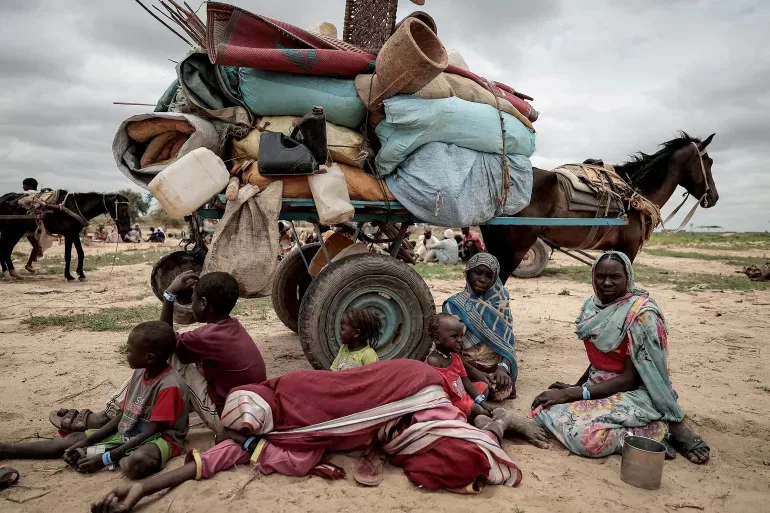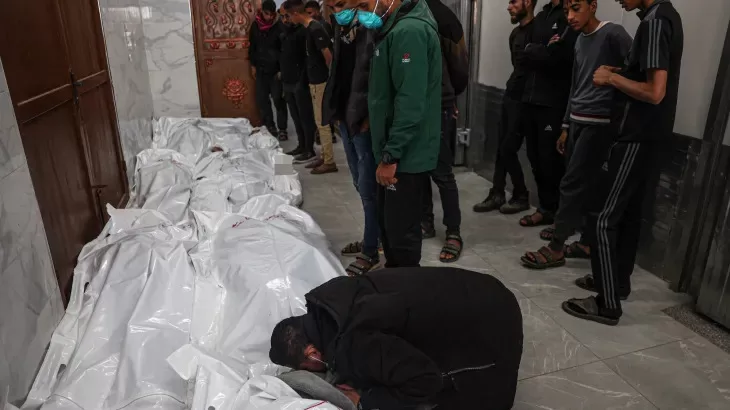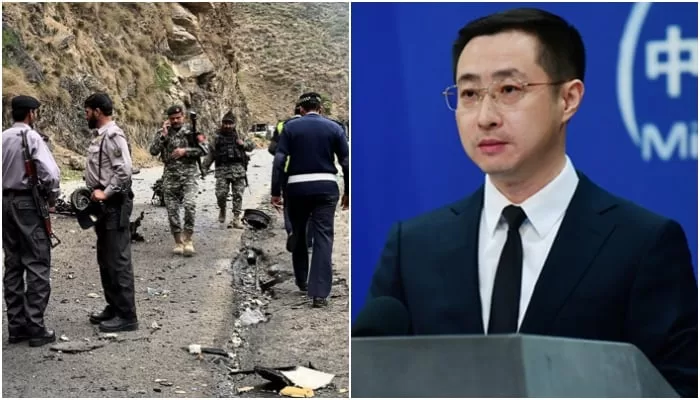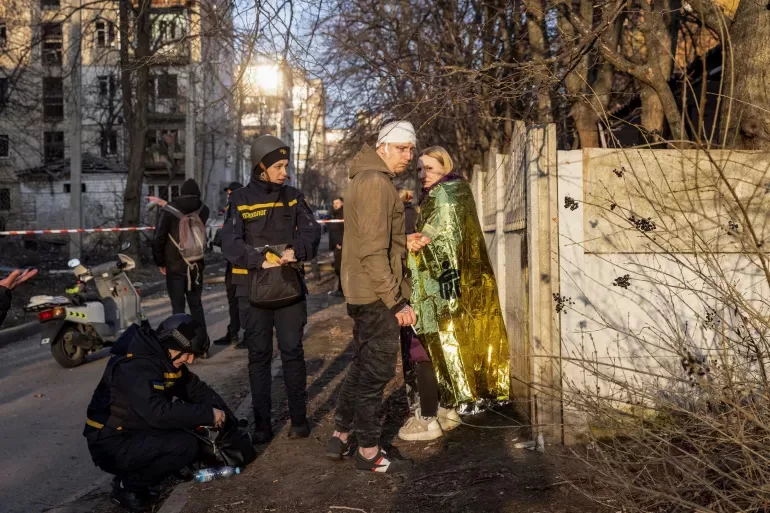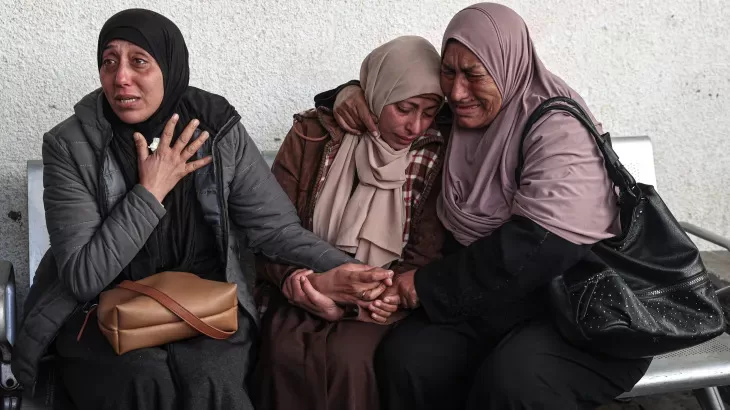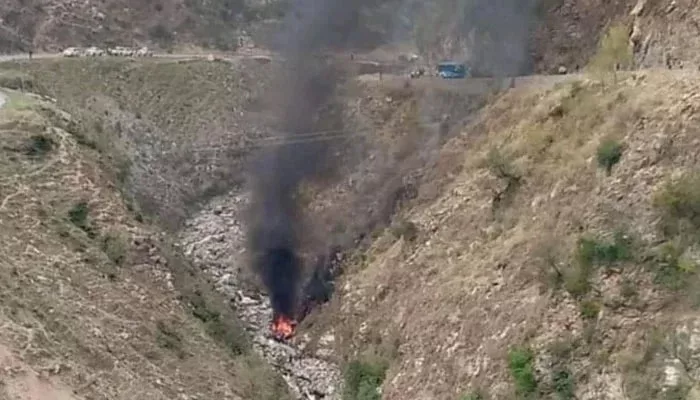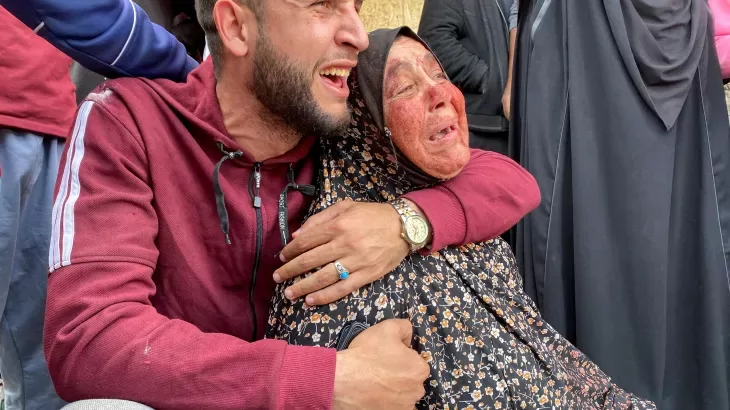One year after the start of the war in Sudan, children are dying of hunger and sick people are not buying medicine so that they can afford food as the population slips towards famine. In mid-April last year, a rivalry between army chief Abdel Fattah al-Burhan and the head of the paramilitary Rapid Support Forces (RSF), Mohamad Hamdan “Hemedti” Dagalo broke into open conflict. Since then, the fighting and significant destruction, paired with much lower agricultural production, have sent food prices soaring and made it extremely hard to find enough to eat. “Civilians are dying in silence,” said Mukhtar Atif, a spokesperson for the “emergency response rooms” (ERRs), a volunteer network helping civilians across the country. Atif’s network provides a single meal a day to about 45,000 people out of about 70 community kitchens in Khartoum North, one of the three cities of the national capital region. The ERRs are a lifeline for thousands across Sudan, but their access is limited at times and they rely on donations, most of which come via mobile banking apps, impossible to use since a near-total communication outage began in February. Without it, hundreds of kitchens were forced to close, and the queues got even longer at the few still functioning, people standing for hours for little more than a pot of fuul, a traditional dish of stewed fava beans. While battles mostly centred in Khartoum in the beginning, they spread outwards as each of the parties consolidated power in the areas it controlled. The fighting has severely restricted the regular movement of food and aid convoys, and the hunger crisis in Sudan has deepened. Nearly 25 million people – half Sudan’s population – need aid, the UN has estimated. The conflict has forced more than eight million people to flee their homes, according to the Armed Conflict Location & Event Data Project. A UN source, who asked that their name be withheld due to the subject’s sensitivity, said both warring sides are posing obstacles, trying to prevent food from getting to areas controlled by their rival. The army has imposed bureaucratic hurdles: An aid convoy in Port Sudan, under the control of the army, needs five different stamps before being able to move to reach civilians in need – a process that can take from days to weeks, the source said. In January, more than 70 trucks were left waiting for clearance for more than two weeks. Al Jazeera reached out to an army representative to ask whether it prevented aid from reaching areas under RSF’s control. By the time of publication, the army had not replied. Where the paramilitaries hold sway, the RSF’s command and control structures make it challenging to facilitate access on the ground, due to a lack of communication between those on the ground and higher-up officials within the RSF. More than 70 aid trucks have been stuck in North Kordofan state since October, the source said, in an area the army controls but surrounded by RSF. The convoy cannot leave unless their safe passage is guaranteed through some form of taxation, be it money, goods or fuel. RSF spokesperson, Abdel Rahman al-Jaali, did not respond to written questions about whether his forces are profiteering from aid convoys as alleged.Play Video Connectivity and desperation The food crisis has been compounded by the nearly two-month mobile network shutdown, which has also cut people off from remittances sent by relatives overseas, a critical lifeline for many that they have been using to receive via mobile banking apps. Over the past three weeks, Elon Musk’s Starlink satellite communication service has offered rare moments of connectivity. But even that has become a business: In some areas, people have to pay up to 4,000 Sudanese pounds ($6.60) to connect for 10 minutes. Without cash, people have begun resorting to extreme mechanisms to put food on the table. Parents are skipping meals for their children, selling their last possessions, begging for money or diverting money from medicine to food, WFP officials and activists on the ground said. Dallia Abdelmoniem, a political commentator working in policy and advocacy for Sudanese think tank Fikra, received reports of women forced to exchange sex for food or become mistresses to RSF fighters to ensure their families’ safety and access to food. A second activist who has been working with female victims of gender-based violence in Sudan said survival sex has emerged as a “common trend”. In tandem with the hunger crisis is the collapse of the healthcare system. Each week, two or three children die of hunger at the Al-Baluk Hospital, the only remaining functioning paediatric health facility in the capital, Khartoum, according to a Lancet report on March 16. UK charity Save the Children said 230,000 children, pregnant women and new mothers could die in the coming months due to hunger.Play Video Video Duration 03 minutes 10 seconds03:10 A bleak forecast All these factors have paved the way for a humanitarian catastrophe, experts and aid groups have warned, as May’s lean season – when food stores are depleted and prices are at their highest – approaches. But food monitoring groups and UN agencies have warned that the season has already begun, as fighting has forced farmers to abandon their land. Sudan’s cereal production in 2023 was nearly halved, according to a report published last week by the Food and Agriculture Organization (FAO). The sharpest reductions were reported where conflict was most intense, including the greater Kordofan state and regions in Darfur where FAO estimated production was 80 percent below average. Nearly five million people are one step away from famine, according to the World Food Programme (WFP). Another 18 million people face acute food insecurity, a threefold increase since 2019, WFP data shows. In December, the RSF captured Gezira state – a hub for trade and humanitarian operations and Sudan’s breadbasket that used to produce nearly half the country’s wheat and stock nearly all of its grain. “We are expecting the situation to deteriorate with a real possibility to see hunger at catastrophic










